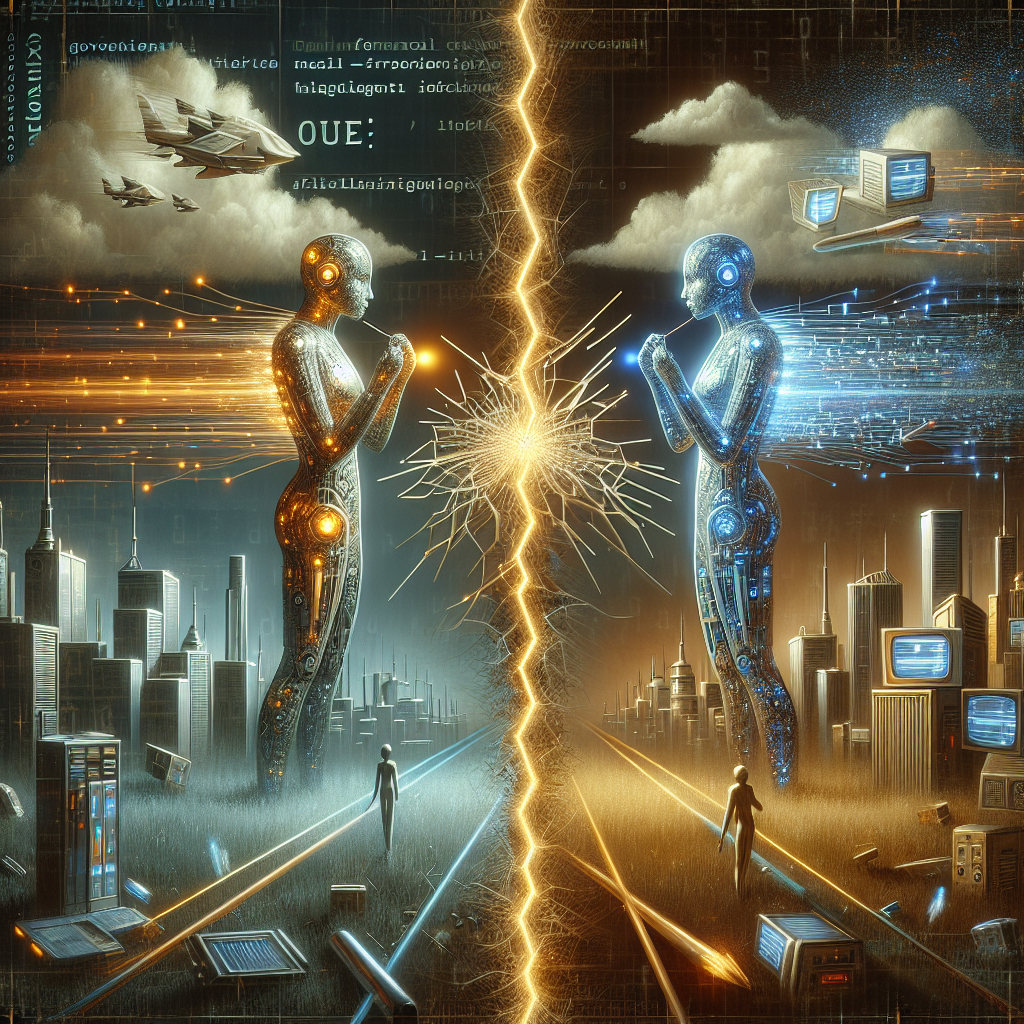Anthropic Revokes OpenAI’s Access to Claude Models: What This Means for Federal AI Contracts
In a significant shift within the artificial intelligence landscape, Anthropic has officially terminated OpenAI’s access to its Claude family of AI models. As two of the most prominent players in the artificial intelligence space, this change marks a new phase in competitive delineation and could have far-reaching implications for both private developers and public-sector contracts, especially in areas where both technologies were previously leveraged in tandem. This article explores what this development means for federal and Maryland state government contractors, procurement officers, and project managers working on AI-integrated initiatives.
The Strategic Decoupling Explained
What Prompted the Decision?
According to sources close to the decision, Anthropic moved to revoke OpenAI’s access to its Claude models amid growing concerns over competitive data usage and market strategy clashes. While details remain limited, analysts suggest that Anthropic is seeking to assert tighter control over how its proprietary AI models are accessed and used—particularly by rival organizations who may benefit from cross-model benchmarking or integration.
This revocation is a clear signal of Anthropic’s intention to establish Claude as a standalone platform, distinct from OpenAI’s offerings like ChatGPT and DALL·E, even if it means reducing short-term utility for some developers.
How the Claude Models Stand Out
Anthropic’s Claude models have gained attention for their strong compliance focus, robust safety training, and nuanced conversational capabilities—all features that have made them particularly attractive for use in government and highly regulated industries. For mid-sized contractors and large system integrators serving agencies such as the Department of Defense (DoD), the National Institutes of Health (NIH), and the Maryland Department of Information Technology (DoIT), Claude models have been adopted in pilot AI programs to handle tasks ranging from policy drafting to citizen service chatbots.
Impacts on Government AI Implementations
Procurement Disruption
Government buyers who were leveraging or exploring joint AI toolsets built on capabilities from both OpenAI and Anthropic will need to re-evaluate their procurement strategies. This could cause delays in proposal development, system integration testing, and COTS (commercial-off-the-shelf) solution deployment that previously used components from both ecosystems.
Additionally, vendors who proposed hybrid AI solutions in response to RFPs or task orders may now face technical challenges or even compliance concerns if their proposed architecture can no longer be supported due to model access limitations.
Contractor Implications
Contractors should immediately:
– Review any existing or pending proposals referencing Claude and OpenAI models;
– Identify substitute models (e.g., fine-tuned LLaMA, Mistral, or Azure OpenAI Service models) that can deliver comparable functionalities;
– Communicate proactively with contracting officers about any required changes or potential extensions for deliverables impacted by this development.
Project managers under federal acquisition regulations (FAR) and Maryland procurement guidelines must ensure any contract modifications are properly documented and submitted through authorized contract adjustment mechanisms.
Security and Compliance Considerations
Data Governance Risks
Projects that leveraged both Claude and OpenAI capabilities must now reassess their data governance strategy. While both companies remain committed to AI safety, data exchange across two proprietary systems could have posed unforeseen compliance risks regarding CUI (Controlled Unclassified Information) or sensitive PII (Personally Identifiable Information).
The separation of these AI ecosystems will likely lead agencies and contractors to lean more heavily on federally secure AI offerings, such as solutions hosted in FedRAMP-authorized environments or available through the GSA’s AI Services SIN (Special Item Number) schedule.
AI Ethics and Bias Mitigation
Each AI model has its own approach to bias detection, prompt filtering, and response curation. Losing access to comparative tools from competing platforms may make it harder for program officers and QA evaluators to benchmark fairness and reduce algorithmic bias in use cases affecting critical services like public-benefit determinations or automated data tagging.
Future Outlook: Fragmentation or Specialization?
This move could signal a broader shift toward vertical specialization in AI platforms where providers double down on targeted industries. For example, Anthropic may now focus on compliance-heavy sectors like healthcare, legal research, and government, while OpenAI continues expanding its generalized consumer and business offerings via integrations like Microsoft Copilot and Azure services.
Agencies and contractors should monitor future developments and prepare for potential ripple effects. This includes considering multi-vendor sourcing strategies, enhancing in-house AI capabilities, and fostering partnerships with firms holding exclusive licenses or training partnerships with leading AI providers.
Conclusion
Anthropic’s decision to revoke OpenAI’s access to its Claude models is more than just a corporate rivalry—it’s a defining moment in how advanced AI will be structured, accessed, and deployed across high-stakes industries, especially within the public sector. For contractors#Anthropic #ClaudeAI #FederalAI #AIContracts #AIGovernance

